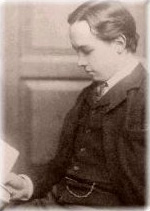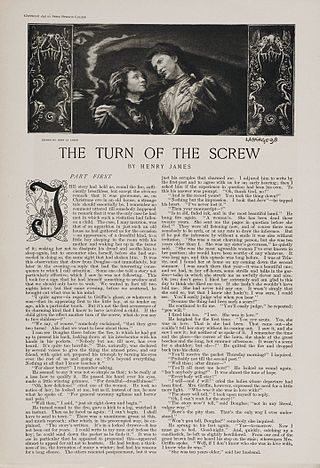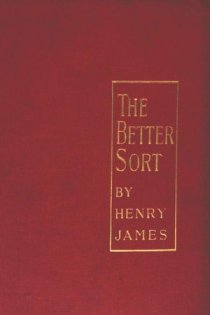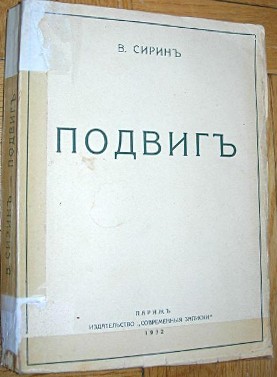Related Research Articles

Hans Christian Andersen was a Danish author. Although a prolific writer of plays, travelogues, novels, and poems, he is best remembered for his literary fairy tales.

The Picture of Dorian Gray is a philosophical novel by Irish writer Oscar Wilde. A shorter novella-length version was published in the July 1890 issue of the American periodical Lippincott's Monthly Magazine. The novel-length version was published in April 1891.

William Sydney Porter, better known by his pen name O. Henry, was an American writer known primarily for his short stories, though he also wrote poetry and non-fiction. His works include "The Gift of the Magi", "The Duplicity of Hargraves", and "The Ransom of Red Chief", as well as the novel Cabbages and Kings. Porter's stories are known for their naturalist observations, witty narration, and surprise endings.

Horatio Alger Jr. was an American author who wrote young adult novels about impoverished boys and their rise from humble backgrounds to middle-class security and comfort through good works. His writings were characterized by the "rags-to-riches" narrative, which had a formative effect on the United States from 1868 through to his death in 1899.

Henry James was an American-British author. He is regarded as a key transitional figure between literary realism and literary modernism, and is considered by many to be among the greatest novelists in the English language. He was the son of Henry James Sr. and the brother of philosopher and psychologist William James and diarist Alice James.

Robert Baldwin Ross was a British journalist, art critic and art dealer, best known for his relationship with Oscar Wilde, to whom he was a devoted friend and literary executor. A grandson of the Canadian reform leader Robert Baldwin, and son of John Ross and Augusta Elizabeth Baldwin, Ross was a pivotal figure on the London literary and artistic scene from the mid-1890s to his early death, and mentored several literary figures, including Siegfried Sassoon. His open homosexuality, in a period when male homosexual acts were illegal, brought him many hardships.

The Turn of the Screw is an 1898 horror novella by Henry James which first appeared in serial format in Collier's Weekly. In October 1898, it was collected in The Two Magics, published by Macmillan in New York City and Heinemann in London. The novella follows a governess who, caring for two children at a remote country house, becomes convinced that they are haunted. The Turn of the Screw is considered a work of both Gothic and horror fiction.
Stalky & Co. is a novel by Rudyard Kipling about adolescent boys at a British boarding school. It is a collection of school stories whose three juvenile protagonists display a know-it-all, cynical outlook on patriotism and authority. It was first published in 1899 after the stories had appeared in magazines during the previous two years. It is set at a school dubbed "the College" or "the Coll.", which is based on the actual United Services College that Kipling attended as a boy.

Goodbye, Mr. Chips is a 1939 romantic drama film starring Robert Donat, Greer Garson and directed by Sam Wood. Based on the 1934 novella of the same name by James Hilton, the film is about Mr. Chipping, a beloved aged school teacher and former headmaster of a boarding school, who recalls his career and his personal life over the decades. Produced for the British division of MGM at Denham Studios, the film was dedicated to Irving Thalberg, who died on 14 September 1936. At the 12th Academy Awards, it was nominated for seven awards, including Best Picture, and for his performance as Mr. Chipping, Donat won the award for Best Actor.

Daisy Miller is a novella by Henry James that first appeared in The Cornhill Magazine in June–July 1878, and in book form the following year. It portrays the courtship of the beautiful American girl Daisy Miller by Winterbourne, a sophisticated compatriot of hers. His pursuit of her is hampered by her own flirtatiousness, which is frowned upon by the other expatriates when they meet in Switzerland and Italy.

The Big Clock is a 1948 American thriller directed by John Farrow and adapted by novelist-screenwriter Jonathan Latimer from the 1946 novel of the same title by Kenneth Fearing.

The Beast in the Jungle is a 1903 novella by Henry James, first published as part of the collection The Better Sort. Almost universally considered one of James' finest short narratives, this story treats appropriately universal themes: loneliness, fate, love and death. The parable of John Marcher and his peculiar destiny has spoken to many readers who have speculated on the worth and meaning of human life.

"The Ransom of Red Chief" is a short story by O. Henry first published in the July 6, 1907 issue of The Saturday Evening Post. It follows two men who kidnap and demand a ransom for a wealthy man's son. Eventually, the men are overwhelmed by the boy's spoiled and hyperactive behavior, so they pay his father to take him back.
"Europe" is a short story by Henry James first published in Scribner's Magazine in June, 1899. In his preface to the story in the New York Edition (1907–1909) of his fiction, James says he got one hint for this domestic tragicomedy from a visit to an elderly lady who largely lived in her recollections of an early trip to Europe. James later heard about her aging daughters who had never been to Europe and much regretted the fact. He combined the two suggestions in a clever plot and produced a brilliant, polished gem of short narrative.
The Author of Beltraffio is a short story by Henry James, first published in the English Illustrated Magazine in 1884. This macabre account of desperate family infighting eventually leads to a tragic conclusion. Although the father in the story is a novelist, the tale concentrates far more on his family relationships than on his special concerns as a writer, though some of those concerns affect the outcome.

Glory is a Russian novel written by Vladimir Nabokov between 1930 and 1932 and first published in Paris.

The Decameron is a 1971 anthology film written and directed by Pier Paolo Pasolini, based on the 14th-century allegory by Giovanni Boccaccio. It is the first film of Pasolini's Trilogy of Life, the others being The Canterbury Tales and Arabian Nights. Each film was an adaptation of a different piece of classical literature focusing on ribald and often irreligious themes. The tales contain abundant nudity, sex, slapstick and scatological humour.

Danger – Love at Work is a 1937 American screwball comedy film directed by Otto Preminger and starring Ann Sothern, Jack Haley and Edward Everett Horton. It was produced and distributed by 20th Century Fox. The screenplay by James Edward Grant and Ben Markson focuses on an attorney's frustrating efforts to deal with a wildly eccentric family.
"The Freshest Boy" is a short story by American writer F. Scott Fitzgerald. It was first published in the July 28, 1928 issue of The Saturday Evening Post, and was reprinted in Fitzgerald's 1935 collection, Taps at Reveille.
Mary De Morgan was an English writer and the author of three volumes of fairytales: On a Pincushion (1877); The Necklace of Princess Fiorimonde (1880); and The Windfairies (1900). These volumes appeared together in the collection The Necklace of Princess Fiorimonde – The Complete Fairy Stories of Mary De Morgan, published by Victor Gollancz Ltd in 1963, with an introduction by Roger Lancelyn Green.
References
- The Tales of Henry James by Edward Wagenknecht (New York: Frederick Ungar Publishing Co. 1984) ISBN 0-8044-2957-X
- A Henry James Encyclopedia by Robert L. Gale (New York: Greenwood Press 1989) ISBN 0-313-25846-5
- The Cambridge Companion to Henry James edited by Jonathan Freedman (Cambridge, UK: Cambridge University Press 1998) ISBN 0-521-49924-0
- Tales of Henry James: The Texts of the Tales, the Author on His Craft, Criticism edited by Christof Wegelin and Henry Wonham (New York: W.W. Norton & Company, 2003) ISBN 0-393-97710-2